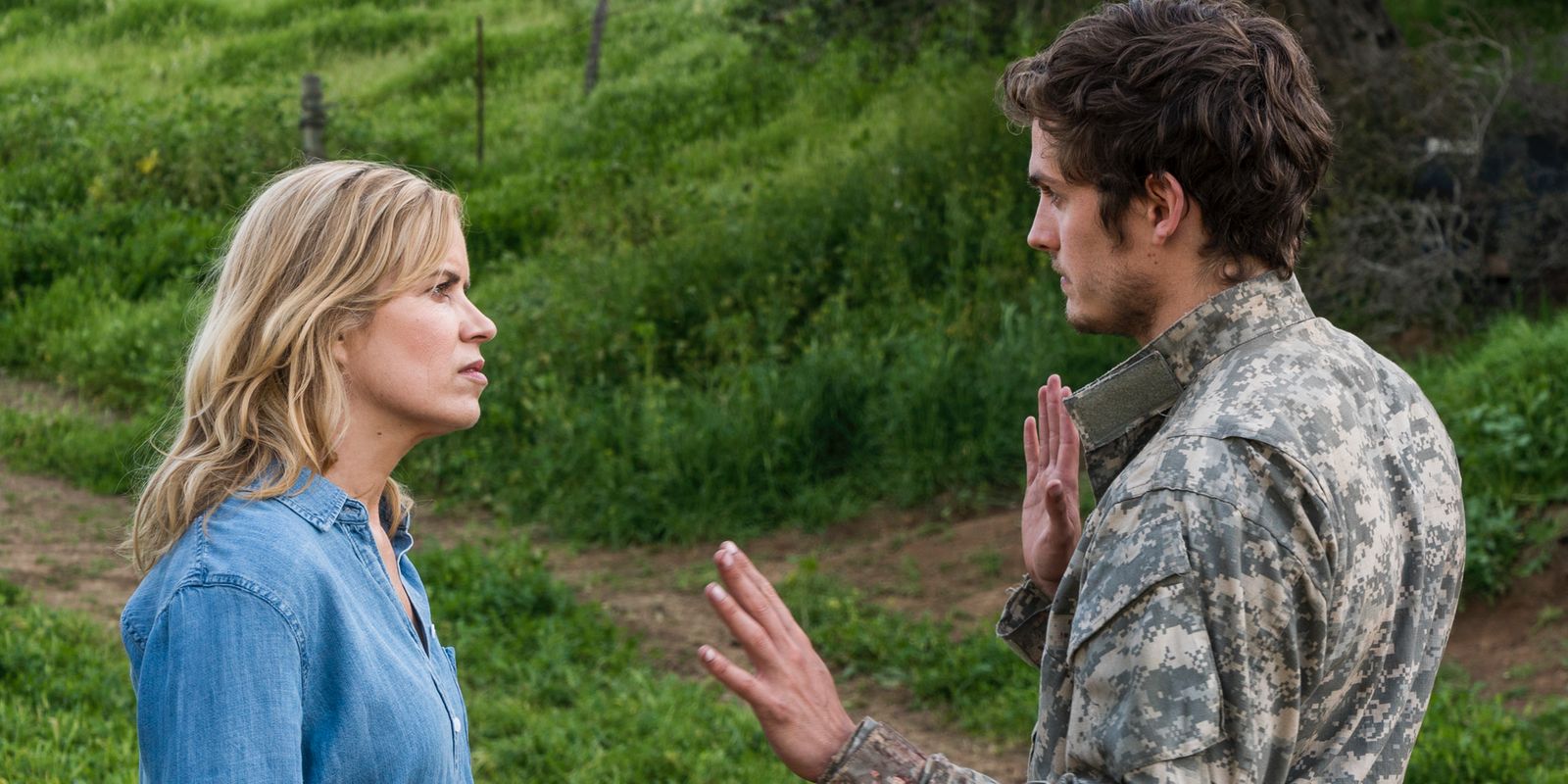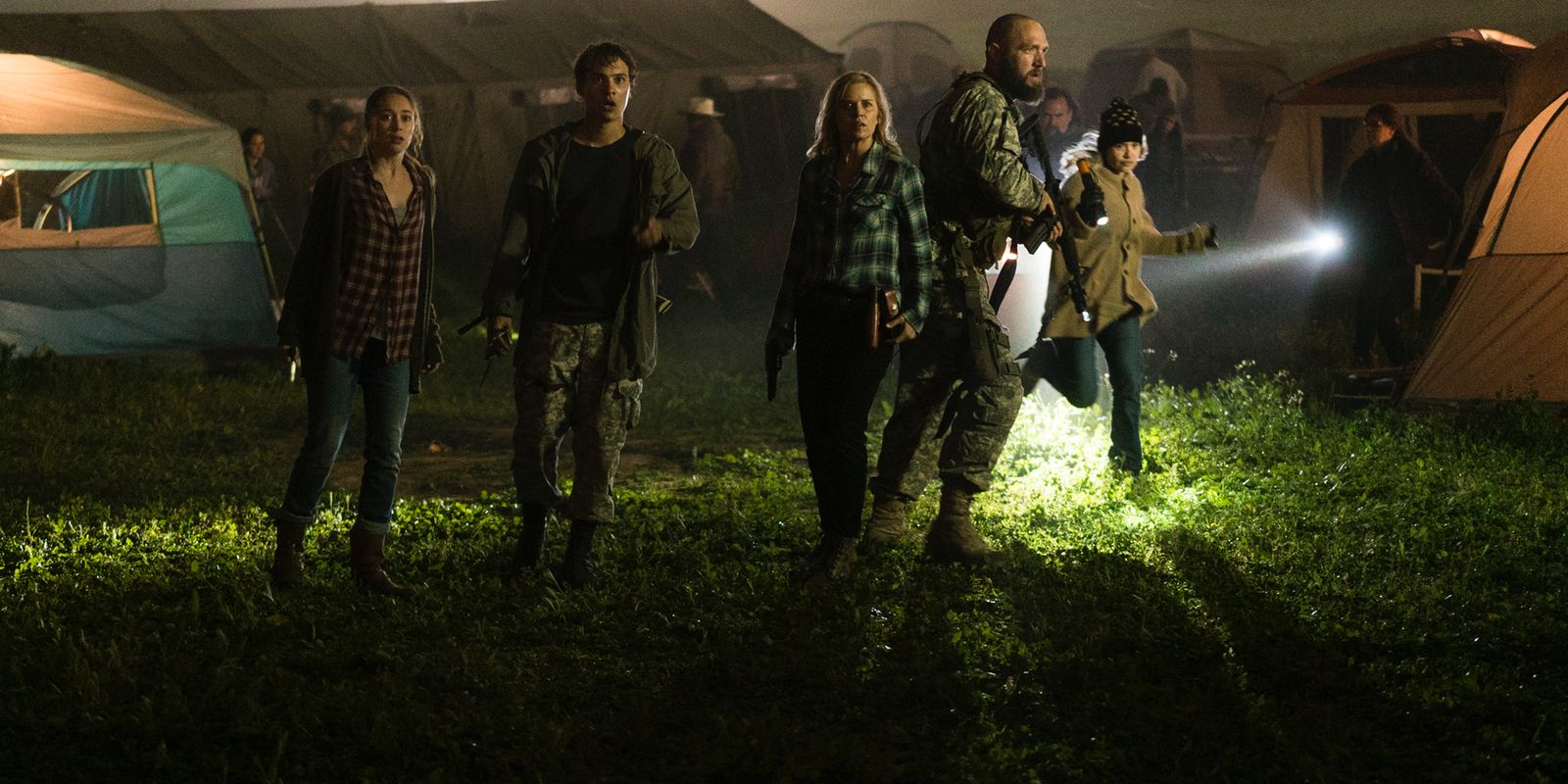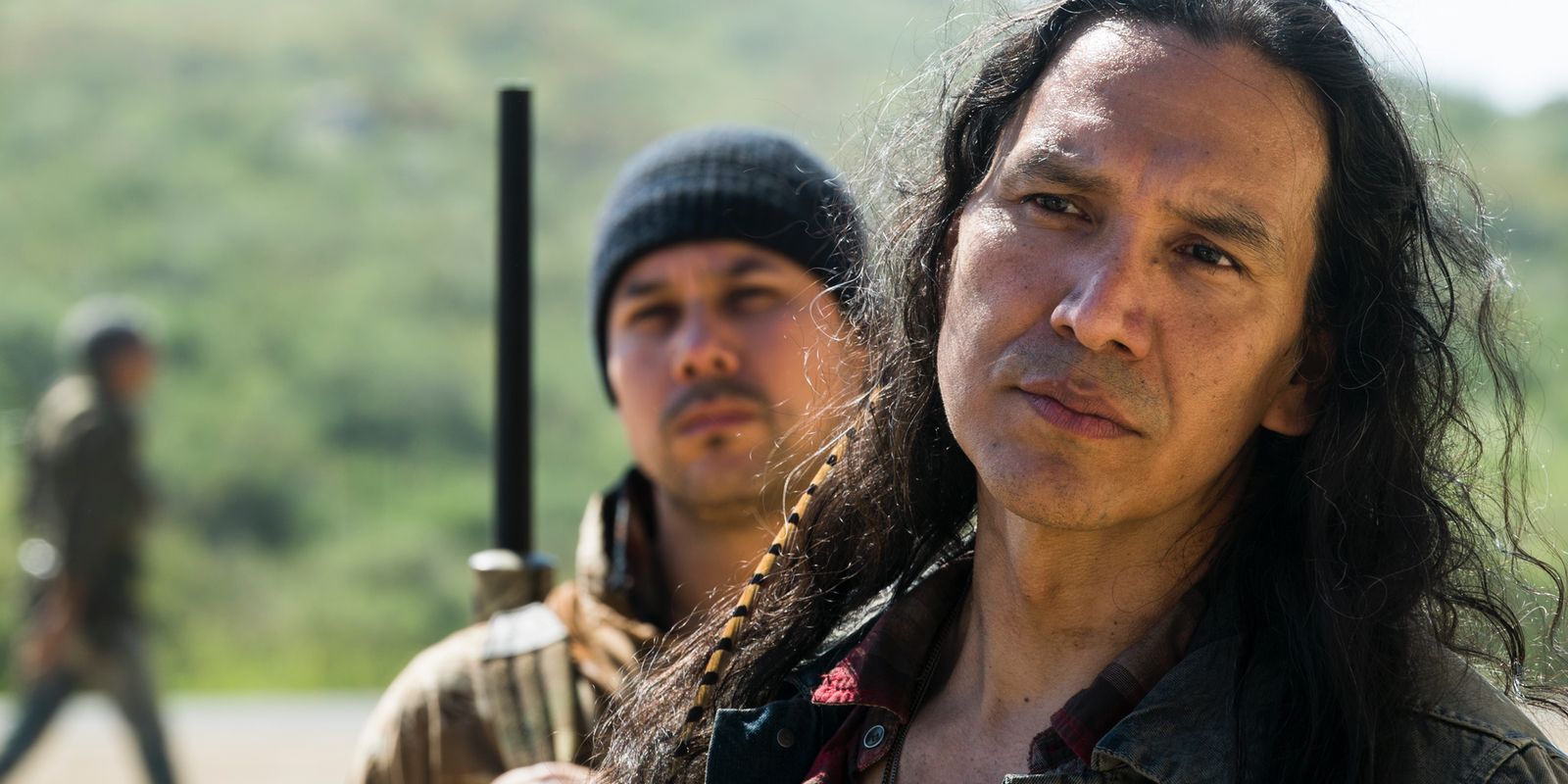Fear the Walking Dead season 3 reaches the halfway point with a major conflict brewing that promises plenty of familiar bloodshed.
While not a game-changer, season 3 of Fear the Walking Dead has made some considerable alterations. Unfortunately, the major cast shakeup that kicked the season off by killing Cliff Curtis's Travis Manawa was like a single drop in an ocean of television programming. In other words, nobody really seemed to notice. Part of that's due to the relentless influx of TV that's out there at the moment, a deluge of content that never seems to end, and, in the case of a show like Fear the Walking Dead, tends to drown out the incessant droning of zombies and the bickering that typically fills the gaps in between.
The general lack of interest in a major character being killed by most outlets covering the series also speaks volumes about the nature of the drama itself. Now in its third season, Fear the Walking Dead has become less a spinoff/prequel of The Walking Dead and more a slightly faded copy of the elder zombie-killing statesman. Though it was billed primarily as a look back at the decline of civilization that was skipped over in the main series, it was Fear's unique dynamic – a blended family trying to maintain as the world literally collapsed around them – that gave the show a legitimate edge over its older sibling. These were potentially relatable characters tossed into a wholly incomprehensible situation, and that dynamic could have resulted in an entirely new avenue for the Walking Dead franchise to explore.
Unfortunately, that was not the case in Fear the Walking Dead season 3, as soon as his son Chris was killed, Travis became the odd man out, and his short reunion with Madison, Nick, and Alicia was upended by the series dealing the one truly dramatic card it really has. The result, then, has been a season following the same path as any other on either in the franchise. The survivors once again find themselves in a situation where protecting a sanctuary means abandoning morality for the sake of pragmatism, and responding to every potential conflict with the same "might makes right" ethos that runs through both shows, seeing protagonists become nearly indistinguishable from antagonists in their actions.
Now that the Manawa-Clark era is officially over, in its place has been the ongoing adventures at Broke Jaw Ranch, where a familiar conflict has arisen between the Otto family and the leader of a Native reservation led by Qaletaqa Walker. So far, much of the season's true tension has revolved around the brewing conflict between the two parties, with there being more than just a hint that the Jeremiah Otto wasn't just an old, drunk racist; he was a murderer, too. Most of the season gave the conflict a wide berth; the show seemingly wanted to touch upon the racial and social divide of the two parties, but try as it might, Fear isn't really built to handle storytelling in need of such nuance. Instead it vacillated back and forth between its area of expertise – the Clark family and the things they'll do to survive – and something it's not too familiar with, like tackling a socially relevant subject within the context of a fictional event like a zombie apocalypse.
The result, then, is two hours of back-and-forth between the next generation of Ottos, comprised of the extraordinarily levelheaded Jake and his probably psychotic brother Troy. The extreme difference between the two is Walking Dead 101, as whatever peaceful negotiation Jake is able to work out with Walker is immediately undermined by Troy and his penchant for pulling the trigger – which he has demonstrated time and again all season, starting with the experiments he was running at the military base, and continuing all the way until his murder of the Trimbol family, which Madison helps him to cover up.
It's here that Fear the Walking Dead works too hard to turn Madison into the kind of power player the show wants for the story at hand, rather than the kind of character the series has demonstrated her to be from the beginning. Madison's shown before that she'll do whatever it takes to keep her children safe, as she did during the season 2 midseason finale when she murdered Celia rather than see Nick fall further under her sway. But conspiring with Troy and then agreeing to kill Jeremiah and deliver his head to Walker reeked of narrative necessity rather than compelling storytelling.
Tricking a recently returned Ofelia into poisoning Broke Jaw residents with Anthrax aside, Walker is a fascinating character, one that Fear the Walking Dead would be better off with instead of placated and seen walking off into the sunset with a backpack containing a human head. But it seems that the push-pull of focusing entirely on the Clark family and trying to expand the series beyond their circle of influence demanded both Madison and Nick's participation in Jeremiah's demise, lest they become supporting players in Walker's story. Having them front and center for the midseason finale's requisite big death makes sense considering their importance on the show, but from a purely storytelling standpoint it felt forced.
And speaking of forced storytelling for supporting players, the finale continues to demonstrate just how difficult it is for Fear the Walking Dead to juggle multiple storylines, by showing Strand locating the now-useless Abigail and having a random chat with a Russian Cosmonaut before setting fire to the show's only truly promising storytelling device and walking off looking like he's headed into war. Aside from Alicia this season, Strand is the other promising character on the show but the series has struggled to know what to do with him. He's too big a presence to get caught up in the repetitive sanctuary wars that dominate most storylines, and that seems to be an issue the show has yet to figure out how to resolve.
It's hard to imagine Strand would be of much use with the Clarks' current situation, even though the character works well within that particular family dynamic. With any luck, when Fear the Walking Dead returns for the back half of season 3, it will have figured out what to do with Victor Strand, and it won't resort to forcing him into a conflict out of narrative necessity.
Next: Here Are All The Big TV Shows Attending San Diego Comic-Con 2017
Fear the Walking Dead will return with the second half of season 3 later in 2017.
Photos: Richard Foreman Jr./AMC



